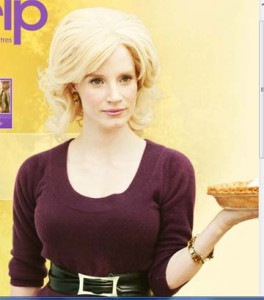"She just don't see em. The lines. Not between her and me, not between her and Hilly." This Minny says to Abilene about Celia. p. 367 in my edition.
After spending much of Monday in a workshop with several Norwegian scholars and thinking about the comparisons between Norwegian and American culture, this observation took on added weight. While Americans are eager to affirm the openness of our society and to defend the possibility of individuals advancing their positions toward social equality, this comment by a fictional character shines a bright light on the possibility that opportunity is more a matter of positional change and less of structural change.
Now I must make reference to my religion department course on Christianity in India. In that course we must repeatedly confront the "vexing" topic of caste. And we find that again and again reform movements that initially call into question the very premise of caste distinction (that is calling for structural change) end up settling for advancing the position of their group within the system (that is accepting positional change.) Lines continue to be drawn, but 'my group' has made progress within them.
One of the participants in the recent workshop observed that in much of European socialism the goal is to make all people equal while in the USA the goal is to give everyone an equal opportunity to make something of themselves. This American view seems to assume that those racial and class lines are natural. I'm interested in thinking about how the characters in this book think about those lines.
This comment by Minny suggests that Celia is unaware of the lines. She wants to be friends both with Hilly who is her social superior and with Minny who is her servant and black. She does not understand that class and race mitigate against such relationships. In contrast Skeeter who is Hilly's social equal arranges for all those toilets to be left on Hilly's lawn and collaborates with Minny and other maids. Does she do this on purpose? Is she aware that she is calling the whole structure into question? The novel is not definitive.
There is no doubt that Hilly no longer regards Skeeter as her equal or as her friend. How Minny and the other maids regard Skeeter is more difficult to say. There is still a line between them. They may not have become friends. But perhaps they have come to see each other more fully. But maybe not. I am left wondering if Abilene, Minny, and all those people from the church who sign the book for Skeeter still regard her in the the categories available to employees and employers in the Jim Crow south. Is that why they urge her to move to New York as they might have given advise to a small, white child?


No comments:
Post a Comment